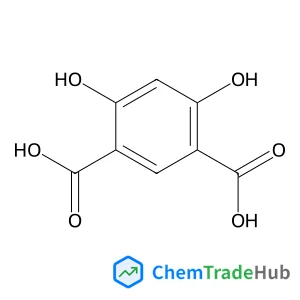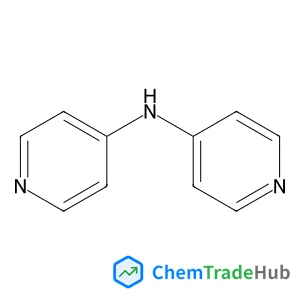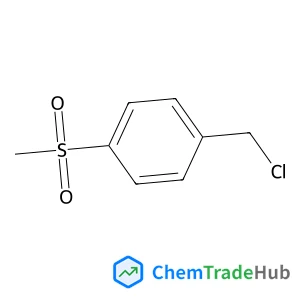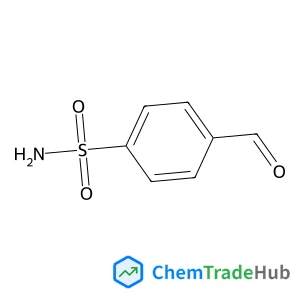Kluyveromyces marxianus supplementation ameliorates alcohol-induced liver injury associated with the modulation of gut microbiota in mice
文献信息
Yuan Yue
The aim of this study was to evaluate the intervention effect of the potential probiotic Kluyveromyces marxianus YG-4 isolated from Tibetan kefir grains on alcoholic liver disease (ALD). Eight-week-old male C57BL/6J mice were fed with a Lieber–DeCarli (LDC) diet containing ethanol with a progressively increasing concentration from 1% to 4% (vol/vol) to establish an ALD mouse model. Our results suggested that K. marxianus treatment improved ALD, as demonstrated by the reduction of serum ALT and AST levels and the suppression of TLR4/NF-κB-mediated inflammatory response in the liver. K. marxianus administration significantly elevated antioxidant activities of SOD, CAT and GSH-Px, and reduced the MDA level in mice. K. marxianus supplementation repaired the gut barrier by increasing tight junction proteins and the number of goblet cells in the colon of ALD mice. In addition, treatment with K. marxianus restored alcohol-induced gut dysbiosis. Specifically, K. marxianus administration depleted the abundance of Lactobacillus, Coriobacteriaceae_UCG-002 and Candida, while increased that of Allobaculum, Dubosiella and Epicoccum in mice. Our findings open new possibilities for K. marxianus application in ALD treatment.
相关文献
IF 6.367
Visible light-driven cross-coupling reactions of alkyl halides with phenylacetylene derivatives for C(sp3)–C(sp) bond formation catalyzed by a B12 complexIF 6.222
Tessellation strategy for the interfacial synthesis of an anthracene-based 2D polymer via [4+4]-photocycloadditionIF 6.222
PEST (political, environmental, social & technical) analysis of the development of the waste-to-energy anaerobic digestion industry in China as a representative for developing countriesIF 6.367
Surface structure-dependent electrocatalytic reduction of CO2 to C1 products on SnO2 catalystsIF 6.367
Sensitive and specific detection of tumour cells based on a multivalent DNA nanocreeper and a multiplexed fluorescence supersandwichIF 6.222
Catalytic depolymerization of Kraft lignin to produce liquid fuels via Ni–Sn metal oxide catalystsIF 6.367
Ultra-thin NiFeSe nanosheets as a highly efficient bifunctional electrocatalyst for overall water splittingIF 6.367
Permselective ion electrosorption of subnanometer pores at high molar strength enables capacitive deionization of saline waterIF 6.367
Enhanced power performance of an in situ sediment microbial fuel cell with steel-slag as the redox catalyst: I. electricity generationIF 6.367
来源期刊
Food & Function
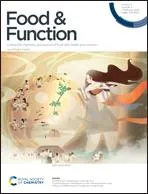
Food & Function provides a unique venue for physicists, chemists, biochemists, nutritionists and other food scientists to publish novel, cutting-edge, original research focussing on food, its nutrients and their relation to human health and nutrition. We welcome research describing the: Physical properties and structure of food and how this relates to sensory perception and human health Biochemical and physiological actions of food components Interactions between foods, gut microbiota and human physiology Nutritional and biological evaluation of food Clinical and population studies using food or food components Development of biomarkers of food intake and effects on human health We also welcome systematic reviews and meta-analyses of existing studies in the literature, provided these are objective and scientifically valid Food in this context is defined as materials of plant, animal or mineral origin, which are consumed orally (by humans) for pleasure and to sustain growth and vital processes. Examples of research topics that are of interest to be published in Food & Function are: Chemistry and physics of food components and digestion processes Relationship between the physical properties/structure of food and nutrition and human health - for example, impact of food matrix or processing on nutrient release and uptake Molecular properties and physiological effects of food components (nutrients, fibres, essential micronutrients, phytochemicals, bioactives, food substitutes, novel ingredients, allergens, flavours and fragrances) Nutritional and health effects of food including bioavailability and metabolism assessment of food components (nutrients, micronutrients and other microconstituents) Efficacy and mechanisms of food constituents in the body - including biomarkers of intakes, exposure and effects Impacts of foods/food components on gut microorganisms and human physiology - For example impact of fermented foods Role of nutrition and diet in human disease prevention and development Cellular and molecular effects/mechanisms of food/food components image block The following types of research are not within the scope of Food & Function: Research relating to traditional herbal medicines, medicinal plants or active compounds extracted from such plants (materials that are primarily consumed as medicine, i.e. the intended purpose is primarily to treat, cure or prevent a non-deficiency disease) or relating to foods not recognised as human diet contributors Animal nutrition research that is not primarily designed as a model to benefit human nutrition (for example, studies of growth/accretion, heat stress, weaning, ruminant digestion, meat quality, etc.) Treatments administered by non-oral routes such as injection (subcutaneous, intramuscular, intraperitoneal, etc.), dermal/transdermal, rectal, inhalation, nasal, etc. Exceptions are when such routes of administration are used for mechanistic/control purposes in the experimental design Pharmacological/pharmaceutical approaches: Encapsulation, emulsification and/or pure controlled release of compounds or bioactives that do not come directly from edible foods, such as dietary supplements - these are better suited to a pharmaceutical journal In vitro or in vivo studies with poorly defined (insufficiently characterised) extracts and studies without appropriate controls will not be considered Cells studies not considering the metabolism of food components ingested – for example, irrelevant exposure of cells to compounds not present in the body after absorption Manuscripts with only a fully theoretical/bioinformatic approach and without appropriate support from analytical evidence will not be considered for publication Studies focussing solely on food engineering, preservation and sustainable technologies – these can be published in our companion journal Sustainable Food Technology Pure food analysis - these can be published in Analytical Methods
推荐供应商
 波利西乌斯 AG
波利西乌斯 AG MOLLOX CHEMIE GmbH
MOLLOX CHEMIE GmbH 弗里德里希·德索恩 GmbH
弗里德里希·德索恩 GmbH 苏州市虎丘区星火精细化工厂
苏州市虎丘区星火精细化工厂 纳诺洛普
纳诺洛普 西门斯建筑技术有限公司
西门斯建筑技术有限公司 淄博诺施化工有限公司
淄博诺施化工有限公司 ZIAG工厂工程有限公司
ZIAG工厂工程有限公司 柯恩技术有限公司
柯恩技术有限公司 浙江省长兴创新超细粉有限公司
浙江省长兴创新超细粉有限公司











